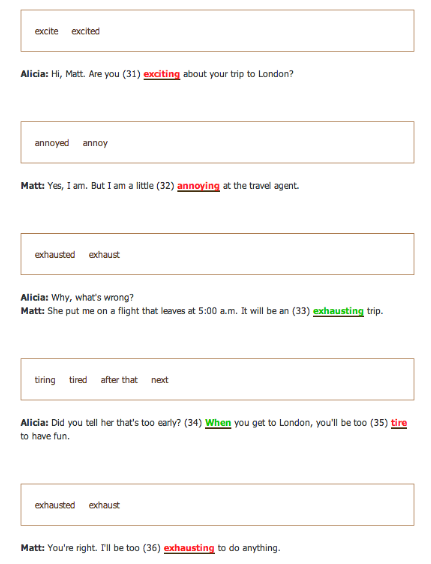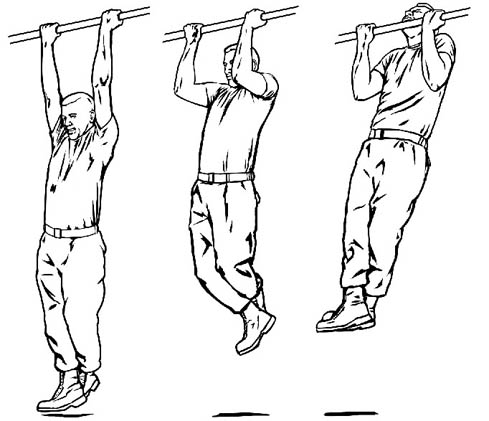Adjectives
St
udent: I can't understand it. What's the grammar rule ?
Teacher: You are treating these words as verbs, but they are adjectives in these sentences. They are describing the feelings of the subject. A few simple examples: I am annoyed. She is excited to go on vacation. The dog was tired. Marathons are exhausting.
Think of emoticons (from skype) when you are trying to decide if a word is an adjective…
I am bored.
Here is a 'text book' explanation from http://grammar.ccc.commnet.edu/grammar/adjectives.htm
Adjectives that are really Participles, verb forms with -ing and -ed endings, can be troublesome for some students. It is one thing to be a frightened child; it is an altogether different matter to be a frightening child. Do you want to go up to your professor after class and say that you are confused or that you are confusing? Generally, the -ed ending means that the noun so described (“you”) has apassive relationship with something — something (the subject matter, the presentation) has bewildered you and you are confused. The -ing ending means that the noun described has a more active role — you are not making any sense so you are confusing (to others, including your professor).
The -ed ending modifiers are often accompanied by prepositions (these are not the only choices):
- We were amazed at all the circus animals.
- We were amused by the clowns.
- We were annoyed by the elephants.
- We were bored by the ringmaster.
- We were confused by the noise.
- We were disappointed by the motorcycle daredevils.
- We were disappointed in their performance.
- We were embarrassed by my brother.
- We were exhausted from all the excitement.
- We were excited by the lion-tamer.
- We were excited about the high-wire act, too.
- We were frightened by the lions.
- We were introduced to the ringmaster.
- We were interested in the tent.
- We were irritated by the heat.
- We were opposed to leaving early.
- We were satisfied with the circus.
- We were shocked at the level of noise under the big tent.
- We were surprised by the fans' response.
- We were surprised at their indifference.
- We were tired of all the lights after a while.
- We were worried about the traffic leaving the parking lot.
Do you have any questions? Please! Feel free to contact me with them


